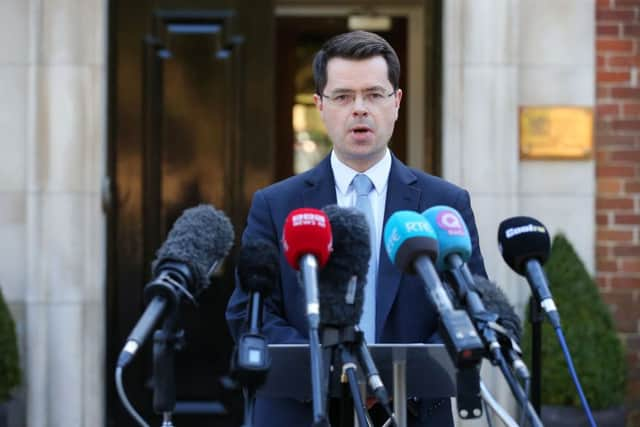A second election would be the most polarising in my lifetime


They are organising registration meetings across the Province and Michelle O’Neill has said: “There is only one option which the British secretary of state is entitled to take and that is to call an election. There is no basis for any other course of action.”
While she says that SF will be talking to the other parties over the next few weeks, there is no indication that those talks will amount to negotiations leading to a deal.
Advertisement
Hide AdAdvertisement
Hide AdBut why are they so keen? Well, they clearly think they can add enough votes (they were just 1,168 votes behind the DUP on March 2) and emerge as the largest party in terms of both seats and votes. If they manage to do that – and I wouldn’t dismiss the possibility at this point –it will allow them to put enormous pressure on James Brokenshire to grant a border poll.


“Look,” they will argue, “we are the biggest party, we have the most votes and seats and unionism, for the second time in a row, doesn’t have a majority in the Assembly.”
Sinn Fein is in a buoyant mood. They believe that they have unionism on the back foot. They believe they can eclipse the DUP. They believe that nationalists/republicans who haven’t voted for years believe that Irish unity is now a potential reality rather than a mere aspiration.
They believe they can knock a few seats from the SDLP tally. They believe that Brexit has created conditions for them that haven’t existed before, and created a huge problem for unionists. As Gerry Adams noted a few days ago, “Don’t waste a crisis.”
Advertisement
Hide AdAdvertisement
Hide AdMeanwhile, for all the ‘Brexit will be good for us’ language coming from some of their spokespeople, the DUP is aware they have a problem.


They may, during the election, have talked up the prospect of finding themselves in a minority, but they didn’t really believe it would happen. And now that it has, unionism, collectively, is spooked. Which means that they return to the default response of pacts, arrangements and unity.
Both the DUP and SF will have spent the past three weeks analysing the results; working out where and how to squeeze a few more seats and votes. An early election probably favours SF, because it limits the time available for the DUP and UUP to cut any deal. And the UUP will be cautious, because they really can’t afford to take another hit. But the reality is that the most likely way the DUP can win the seats they need to get to 30 and above (giving them the Petition of Concern veto), is from the UUP. The drop from 108 to 90 tightened the margins and made it more difficult to pick up the crucial last minute seats; which partly explains why unionists lost 16 of the 18 seats.
If there is a second election it would, almost certainly, be the most bruising and polarizing one in my lifetime: because it would boil down to collective unionism versus republicanism with its tail up. Neither side will be talking about a result to maximize the prospects of consensual negotiations on the other side of an election: instead, they will be impressing upon their supporters the fact that this will be the most important election in a generation. If SF slips back it will dent enthusiasm and confidence. If the DUP widens the gap it will strengthen Foster’s hand. But neither of those outcomes will make it easier to cut a deal and restore the executive.
Advertisement
Hide AdAdvertisement
Hide AdAnother election would go to the existential core of each community. Another bad day for unionism will raise all sorts of very difficult questions about what they do next. A bad day for SF will raise questions for them about Adams’s handling of events since late last December. It’s actually hard to think of an outcome that would make it easier to negotiate and sign-off an agreement.
Which tends to make me wonder why SF seems wedded to the idea of another election. It is a huge risk for them, with no guarantee that it will deliver what they most want—their emergence as the largest party. And the likelihood of a deal, irrespective of the outcome, seems remote, too. So, are we really—as I suggested in December—at the point at which Sinn Fein is thinking beyond the Assembly: in other words, is prepared to let the Assembly fall while they pursue their agenda through the British and Irish governments?
James Brokenshire won’t be keen on facilitating this sort of election. But he also knows that direct rule will kill off the present process for SF, while unionists won’t accept British/Irish rule. At this point, all of the options look awful. Even atheists may be praying.